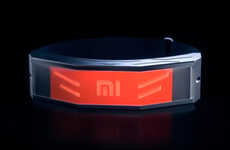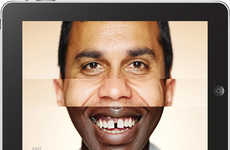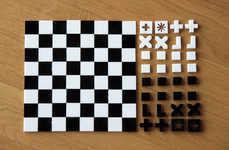
The W.I.L.D. iPad Game is Controlled With Your Thoughts
References: mindgames.is & itunes.apple
MindGames, an Icelandic start-up company, has released W.I.L.D., the world’s first mind-controlled iPad game. W.I.L.D. stands for "Wake-Initiated Lucid Dreaming," and in the game, players navigate a waking dream with concentration and meditation. With the power of the mind, players can do “simple things” such as putting out fires, bending spoons and creating galaxies.
Players control the W.I.L.D. game using headsets like the PLX XWave and NeuroSky MindSet, which read your brainwaves. MindGames released the world’s first mind-controlled iPhone app last December, called Tug of Mind, in which people can take a picture of someone they don’t like, record an annoying phrase they say and practice on keeping calm while dealing with that person.
The MIT-trained brains behind MindGames say that this is only the start of what is to come from the company in the coming months. Five new levels will be added to W.I.L.D. next month, so we better get ready to see some more of the world’s first mind-controlled iPad game.
Players control the W.I.L.D. game using headsets like the PLX XWave and NeuroSky MindSet, which read your brainwaves. MindGames released the world’s first mind-controlled iPhone app last December, called Tug of Mind, in which people can take a picture of someone they don’t like, record an annoying phrase they say and practice on keeping calm while dealing with that person.
The MIT-trained brains behind MindGames say that this is only the start of what is to come from the company in the coming months. Five new levels will be added to W.I.L.D. next month, so we better get ready to see some more of the world’s first mind-controlled iPad game.
Trend Themes
1. Mind-controlled Gaming - The development of mind-controlled gaming apps opens up a new frontier for interactive entertainment and challenges traditional methods of gameplay.
2. Neurofeedback Technology - The use of headsets that read brainwaves to control digital interfaces not only enhances gaming experiences but also has potential applications in fields such as healthcare and education.
3. Lucid Dreaming - The integration of dream exploration and cognitive exercises in mind-controlled gaming experiences offers opportunities for personal growth and self-discovery.
Industry Implications
1. Gaming - The gaming industry can explore mind-controlled gaming as a disruptive innovation opportunity to attract new audiences and revolutionize user experiences.
2. Technology - The development of neurofeedback technology has implications for various industries, including healthcare, education, and human-computer interaction.
3. Self-improvement - The integration of lucid dreaming techniques in mind-controlled gaming presents opportunities for self-improvement and the exploration of consciousness, appealing to the personal development industry.
3.4
Score
Popularity
Activity
Freshness















